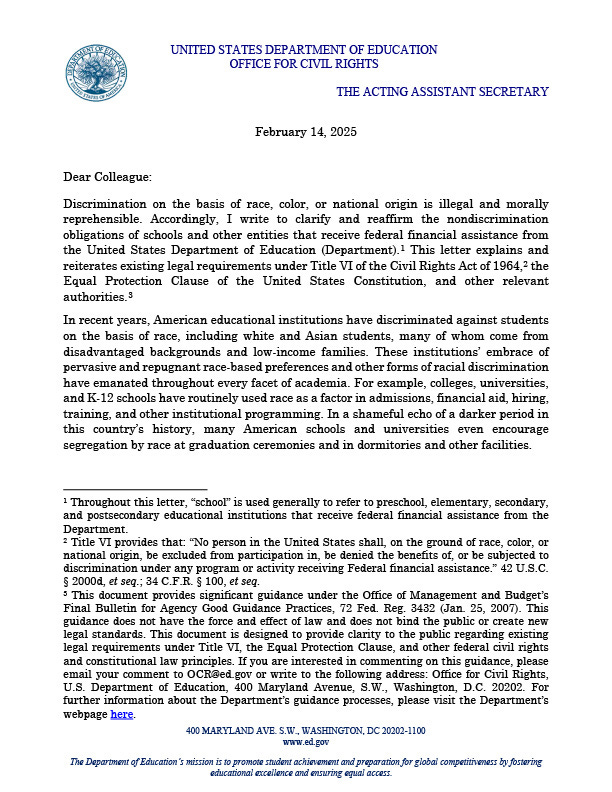Opinion: appreciating Black History Month as DEI disappears
Maya Dickerson - News & Opinion Editor
Black History Month runs from February 1st to March 1st, honoring the culture and history of Black Americans in the United States. The 2025 Black History Month theme is African Americans and Labor. The theme strives to spotlight all the ways Black Americans’ work has impacted the United States.
As we reflect on all the cultural, societal, and educational influences African Americans have had on our country, we must also look to the future. Recent changes at the federal level are impacting diversity, equity, and inclusion initiatives on our campus.
On February 14, in the middle of Black History Month, every college in the U.S. received a letter from the United States Department of Education Office for Civil Rights, signed by Acting Assistant Secretary for Civil Rights, Craig Trainor. The letter begins with “Dear Colleague,” and can be found anywhere online for viewing purposes.
This letter has caused our very own campus to review everything DEI named or related, not only at an administrative level but in student organizations as well.
The letter breaks down the legal requirements of the Title VI Civil Rights Act of 1964, the Equal Protection Clause, and additional related cases. It said some institutions have discriminated against students based on race and encouraged segregation in facilities. In the letter, it said that these practices are still happening today “under the banner of ‘diversity, equity, and inclusion’, (‘DEI’), smuggling racial stereotypes and explicit race-consciousness into everyday training, programming, and discipline.” The letter clarifies that any discrimination concealed as DEI is illegal. The “Dear Colleague” letter continued with examples of one race being preferred over another in DEI programs.
The Department of Education Office for Civil Rights concluded they will not allow racial discrimination in colleges and universities. The letter says that colleges must ensure their policies and actions comply with civil rights laws, stop direct or indirect efforts that put barriers on race, and end relations with third-party organizations that put prohibitions on race. One of the ways to do this is to eliminate the “insidious ways” of DEI programs.
Colleges and universities have been given 14 days to make changes on their campuses or they may lose their federal funding. The request from the Department of Education Office for Civil Rights is another meaningless roadblock put on schools. It doesn’t keep students’ best interest in mind, as it accuses all institutions of misrepresenting positive initiatives as racist.
As of right now, there is much confusion surrounding the contents of the “Dear Colleague” letter and what actions to take next. It’s important to recognize and educate ourselves on the struggles of minority groups have gone through in the U.S. Some of these struggles have even been caused by the federal government and will not be mended by taking away diversity, equity, and inclusion programs at universities.


